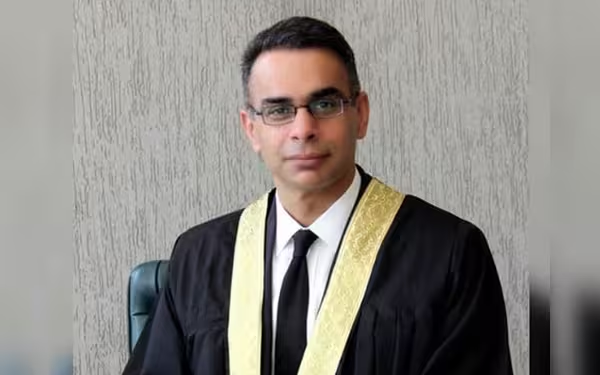Sunday, June 30, 2024 06:34 PM
Islamabad High Court Orders Telecom Companies to Cease Surveillance
- IHC directs telecom companies to stop recording phone calls for surveillance
- Justice Babar Sattar emphasizes transparency in surveillance authorization process
- IHC orders FIA to conduct forensic examination of leaked audio recordings
 Image Credits: tribune_pk
Image Credits: tribune_pkThe Islamabad High Court issues orders to telecom companies to halt surveillance activities, emphasizing transparency and accountability in the authorization process. The court also directs the Federal Investigation Agency to investigate leaked audio recordings, aiming to protect privacy rights and uphold legal standards.
The Islamabad High Court (IHC) recently issued a significant order in the audio leaks case, directing telecom companies to stop recording phone calls and data for surveillance purposes. This decision came in response to petitions from former first lady Bushra Bibi and the son of former chief justice Saqib Nisar, who raised concerns about leaked audio recordings. The court, led by Justice Babar Sattar, questioned the legal basis for the Pakistan Telecommunication Authority (PTA) to conduct surveillance activities.
During the proceedings, the Additional Attorney General Munnawar Iqbal clarified that surveillance activities were being carried out within a legal framework. However, Justice Babar Sattar emphasized the need for transparency in the authorization process for recording calls. The court highlighted discrepancies in previous statements and pressed for details on the surveillance authorization process.
Justice Babar Sattar raised concerns about the lack of oversight and accountability in surveillance activities, prompting the court to direct telecom companies to refrain from using phone calls and data for surveillance purposes. The court warned of consequences for any involvement in illegal surveillance activities, stressing the importance of following established laws and procedures.
In a separate development, the IHC ordered the Federal Investigation Agency (FIA) to conduct a forensic examination of leaked audio recordings involving prominent individuals. The court expressed dismay over the unauthorized airing of private conversations and sought clarity on the entities responsible for the leaks.
The Attorney General for Pakistan (AGP) confirmed that no government agency had been granted permission for audio tapping, emphasizing the illegality of such recordings. The court reiterated the importance of transparency and accountability in electronic surveillance practices, aiming to uphold legal standards and protect citizens' privacy rights.
The ongoing inquiry by the Islamabad High Court seeks to address the unauthorized disclosure of sensitive information and hold responsible parties accountable for any breaches of privacy. This decision marks a significant step towards safeguarding individuals' privacy rights and ensuring that surveillance activities are conducted lawfully and ethically.












